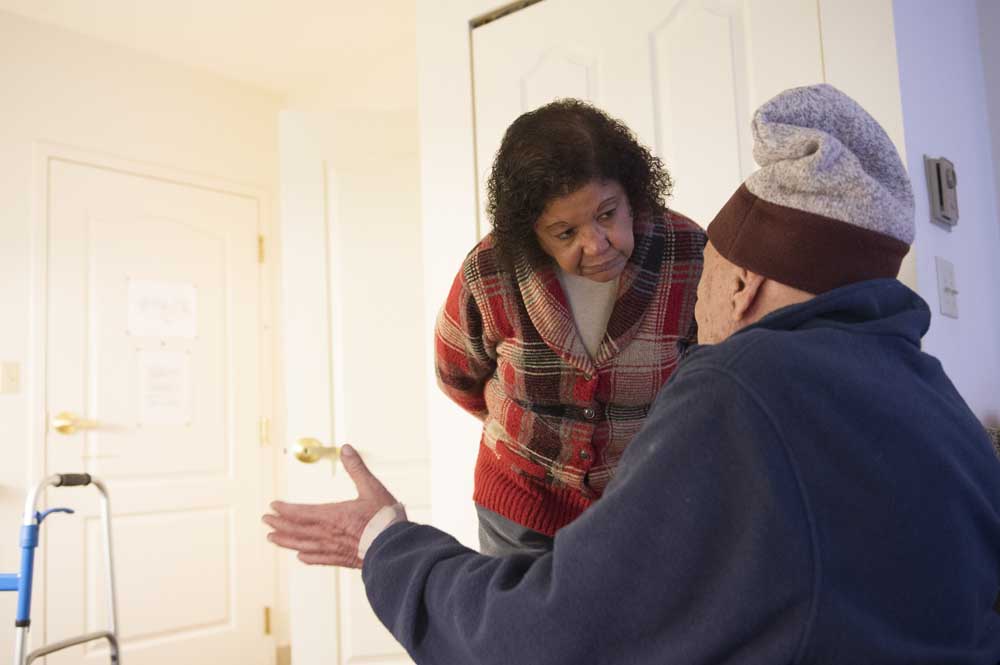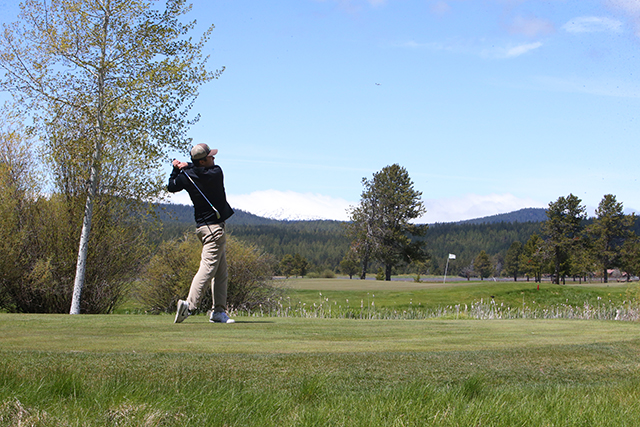For some retirees, a second act is easier than expected
Published 12:00 am Friday, July 11, 2014

- Gretchen Ertl / The New York TimesCheryl Delaney spent her entire career in banking and finance before a retirement that she says did not suit her, and she soon found herself working five-day weeks as a caregiver.
Never in a million years did Cheryl Delaney expect to spend her retirement working with the elderly. Her entire career had been in the financial sector — as a bank officer and loan administrator in collections, and finally as an office manager at Fidelity Investments in Boston. Changing bedpans was not on her bucket list.
But life unfolds in strange ways. In 2004, Delaney was looking for a new position in banking and visited retirementjobs.com, which offers job listings and career advice for people over 50. Three years later, she decided to leave Fidelity and stop working full time. She did some administrative work, renovated her home in Milton, Massachusetts and was “very happily retired.”
Until she wasn’t. By the end of 2012 she was paying way too much attention to her television set. “My dogs were getting on my nerves,” she said. She considered returning to work, but emphatically did not want to go to an office.
Around the same time, she got a call from Mature Caregivers, a sister site to retirementjobs.com. They were looking to place caregivers older than 50, and had found her information in their database. Might she be interested?
“I said, ‘I don’t have medical experience,’” Delaney, now 66, recalled. “They said, ‘You just need to have common sense.’” A week later she went in for an interview. Today, she works four hours a day, five days a week, at Boylston Place, an assisted-living facility in Brookline, Massachusetts.
“It’s quite a switch,” she said.
Delaney’s story is an object lesson for retirees. Many worry that their existing skills aren’t applicable to new industries, that their expertise isn’t transferable and that they will have to reinvent themselves to remain competitive. This, of course, can be overwhelming.
“There’s a real myth around reinvention, particularly when you talk about people in their 60s and 70s,” said Nancy Collamer of Old Greenwich, Connecticut, a semiretirement career expert and author of “Second-Act Careers.” “Why would you want to throw away all of that life and work and professional experience? It’s so much more about reconfiguring, taking the old and blending it with the new and coming up with something that’s going to excite you in the second half of the third quarter.”
A 2008 AARP study found that 83 percent of workers were interested in programs to build new skills and advance their careers. Ninety percent, however, wanted training to update their current skills and knowledge.
“It’s so much easier for people to do that if they can lean upon some aspect of what they did before,” Collamer said. “It doesn’t mean if you’ve been an accountant in a corporate setting that you find another accounting job. The goal is to take a step back and look — ‘OK, what is it about being an accountant that I really enjoyed?’ You might discover that the thing you enjoyed most was going to the conference and meeting other people in the field.”
That’s something Marie Ardito learned about herself after retiring at 62 from teaching elementary and junior high school math. Two weeks into retirement, she grew “antsy” and took a job as executive director of a retirement group. Now 77, Ardito is the information coordinator for Massachusetts Retirees United, a nonprofit group. A large part of her job involves conducting seminars and motivating retirees, many of whom are former educators.
“One of the things that drives me crazy is the comment, ‘I can’t do anything but teach,’” Ardito said. “I say, ‘If you can relate to kids, normally you can relate to anyone.’ The skills are transferable. I’ve met people who were teachers who are now working in hospital admissions — they bring their caring skills, their knowledge of computers, of developing programs.”
To help people figure out how their old skills can be used in new ways, Encore.org coordinates a network of organizations offering a fellowship program. Applicants must have a minimum of 15 years of work experience, but typically have about 25 years, said the national director, Leslye Louie. During the fellowship period — which lasts from six to 12 months, part time or full time — participants receive $20,000 to $25,000 ($35,0000 in New York) for 1,000 hours.
“Oftentimes people don’t even know how their skills are transferable — that’s the No. 1 reason people apply,” said Louie, herself a former fellow. “We spend a lot of time working with them on the change of culture, change of identity, how their skills might transfer. I think skills are lifetime assets, and ideally you’re constantly acquiring them and using them.”
Delaney says that everything she learned about caring for the elderly she learned on Wall Street. At Fidelity, for example, a large part of her job was about supporting a trading floor of 325 people. “I learned patience,” she said. “A lot of times the traders would be very frustrated and use foul language. I’d have to get tough with them.”
At her current job, she said, one of her clients is very difficult and often tries to hit her. Her background has helped her here, too. “When he puts a fist up, I’ll say, ‘You’re in big trouble if that hits me,’” she said. “He knows that I won’t take his nonsense. I learned that from the Wall Street guys. Have you ever been around an angry trader who had a bad trading day? It can get really ugly.”






